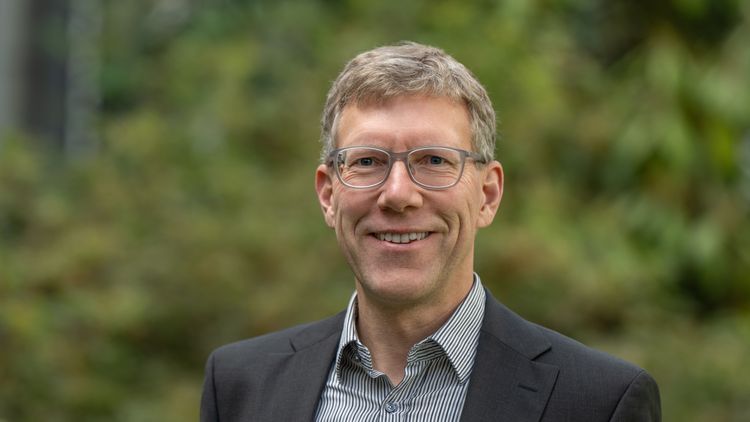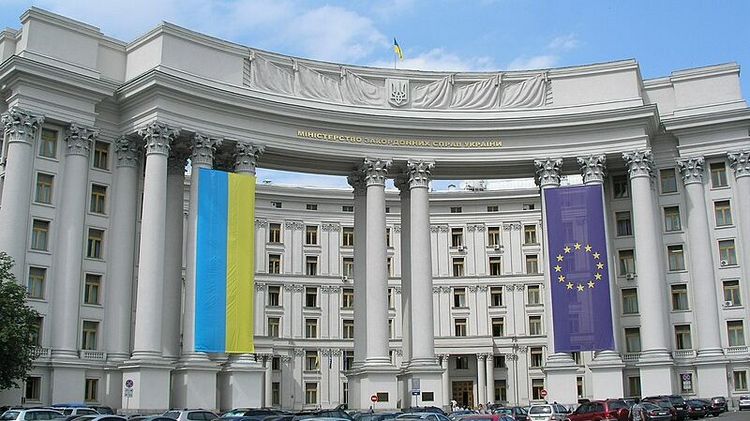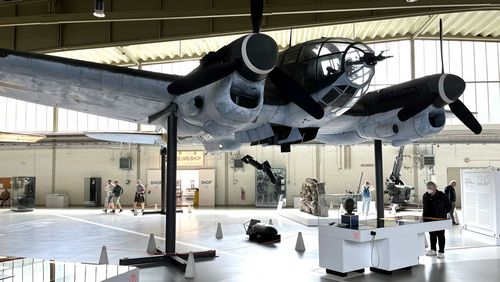Malte Rolf is a professor of Eastern European History. In this interview he talks about the historical roots and significance of Russia’s war against Ukraine and how Germany’s view of Eastern Europe has changed.
Russia's war of aggression against Ukraine has been going on for 18 months now and remains a major topic in the German media. What makes it so significant?
It marks a turning point for Europe and the world – perhaps not as drastic as the Second World War, but comparable to the collapse of the Soviet Union. The consequences of this war will not disappear, even when it eventually comes to an end. We are seeing a massive reconfiguration in Europe. With its aggressive imperialist policy, Russia is pulling away from Europe in many respects – politically, economically, culturally. In my view we now face ten, twenty or thirty years in which Russia will only be very peripherally connected to Central and Western Europe.
And Ukraine?
It will become an important player in and for Europe. I firmly believe that the country will be integrated into Western structures like the EU and NATO. This will mean the addition of a very populous and large nation with great symbolic value. At the same time, the importance of the whole of Eastern and East-Central Europe – of states like Poland, the Czech Republic, Romania and the Baltic countries – will increase at the political, economic and also military level. Finally, we Germans will also reinvent ourselves in our foreign policy. Germany may emerge from this conflict with a new self-image, possibly that of a bridge builder between the East and West, as a key advocate of the East-Central European states vis-à-vis the Western and Southern European countries, but ultimately also as a state with military clout – something which we have not seen ourselves as for a long time.
You talk of this war having brought us to a turning point. Are there deeper historical reasons for this?
When we look at the historical roots, we should distinguish between the long-, medium- and short-term perspectives. The relevant long-term lines go all the way back to the 19th century. To understand today’s conflict, we must look at the Russian empire before 1917, to which large parts of today's Ukraine belonged. Already in that period there was an imperial policy aimed at suppressing, if not eradicating, the Ukrainian culture and language. Russian elites were already claiming that the Ukrainians were not a nation in their own right, but rather the “little brothers” of the Russians. It is precisely this notion of Ukraine’s lack of autonomy that Putin and others are seizing on again today to legitimise their neo-imperial expansionist policies.
The medium-term perspective on the period following the overthrow of the Bolsheviks is important to understand the roots of Ukrainian statehood. After the founding of the Soviet Union in 1922, the Soviet republics enjoyed a certain degree of autonomy, but even more so after Stalin's death in 1953, which meant that pre-state structures and elites already existed when the Soviet Union disintegrated. This facilitated the founding of the Ukrainian state in 1991.
And the short-term perspective?
It focuses mainly on the transformation since 1991. Russia and Ukraine have developed in different directions. Particularly since Putin came to power in 2000, the Russian elite has rediscovered the Empire as a legitimation strategy. This concept is glorified using nationalist rhetoric and serves as justification for aggression against neighbouring states such as Georgia and Ukraine. At the same time, imperialism distracts from Russia’s internal problems, such as the rampant corruption, widespread poverty and interethnic tensions in the country. The massive imperialist propaganda continually aired on Russian state television “numbs” the people of Russia. The Putin regime has succeeded in silencing, if not paralyzing, large parts of the population.
Ukraine, on the other hand, is experiencing a phenomenal civic reinvention that is a success story. To put it bluntly, since 1991, and even more so since 2014, Ukraine has developed something that Germany is still striving for: a civic-minded national identity. Ethnic, confessional, linguistic and cultural differences – for example, the question of whether someone speaks Ukrainian or Russian as their first language – play an increasingly minor role. The people's sense of civic commitment to Ukraine now overarches their different identities – as a Jew, as a Crimean Tatar, as a member of the various Orthodox churches, as a Catholic. And the war is acting as an accelerator of this process.
Let us come back to Germany’s future role in Eastern and East Central-Europe. How have the Germans perceived this area up to now?
The status quo is still heavily influenced by an essentially colonial view – to use a deliberately provocative phrase here – of Eastern and East-Central Europe. In diplomatic relations as well as in our mental outlook, Russia was traditionally the key partner that was treated as an equal. For a long time, the area “in between” was perceived as precisely that and nothing more, or simply as a mass at one's disposal, as evidenced by the multiple partitions of Poland by Prussia, Russia and Austria in the 18th century, and also by the Molotov-Ribbentrop Pact of 1939. Today, we must engage more intensively with this area, because Eastern and East-Central Europe are growing in relevance. And this will also shape the German perception of this part of the continent.
Is there a historical example of an event fundamentally changing the German perception of another country?
After the November Uprising of 1831 in which the Poles rebelled against Russian rule, a new image of Poland emerged in Germany. This image of Poles rebelling against foreign rule was compatible with the German nationalism and liberalism of the Vormärz (the period in German history preceding the 1848 March Revolution). Polish associations were founded and the rebellion had a broad impact in German society. Contemporary critics spoke derisively of “Polenschwärmerei”, or “Polemania”. Fifty thousand Polish refugees received a warm – often enthusiastic – welcome as they passed through Germany on their way to France. This positive image of Poland remained partially intact even after 1848 and well into the 1860s, and only faded with the founding of the German Empire.
The German government is supporting Ukraine for moral, legal and security policy reasons by supplying weapons, providing financial aid and taking in refugees. Do you also see historical arguments for this support?
Yes, because here, too, the historical perspective is important: Germany was a beneficiary of the allies that stood up for us within the NATO framework for 50 years during the Cold War. It was these countries that made West Germany’s democracy and economic prosperity possible. Seen in this light, we, too, have a historic duty to help a country in distress. Because today, Ukraine and the Ukrainian civilian population are the victims of a criminal, partly genocidal war of aggression waged by Russia. As long as Russia continues this war and ultimately aims to destroy Ukraine as a state and nation, the only way to protect the Ukrainian population is by providing massive military support to Ukraine.
Can we learn something from the history of this war?
One must always be a little cautious with “lessons from history”, because history doesn’t simply repeat itself. But one thing we can learn is that “appeasement”, or in other words a policy of making concessions and “letting things pass”, is counterproductive when dealing with aggressive regimes. In the case of Russia, many experts on Eastern Europe had long warned against our being naive, but their warnings went unheeded in the more general political and media discourse. Instead, large sections of the German elites underestimated Putin’s aggressivity and willingness to wage war and made us more and more dependent on Russia for things like natural gas, for example. We should not repeat this mistake.
Interview: Henning Kulbarsch





